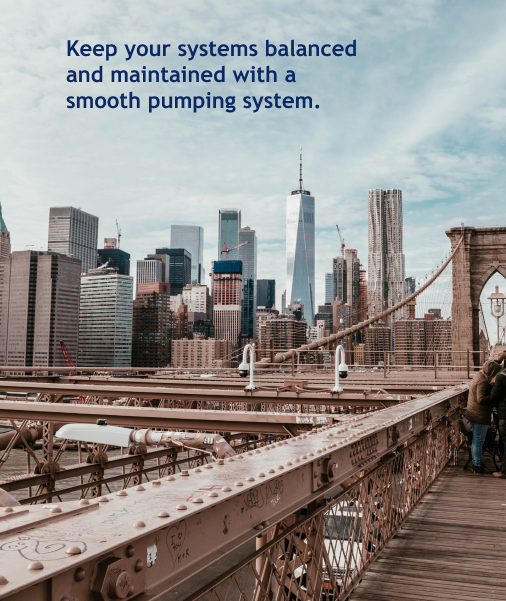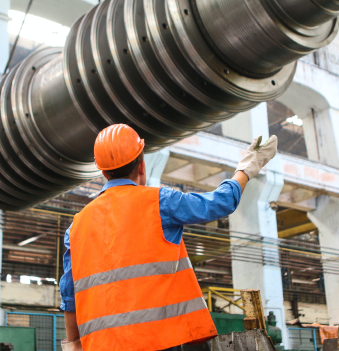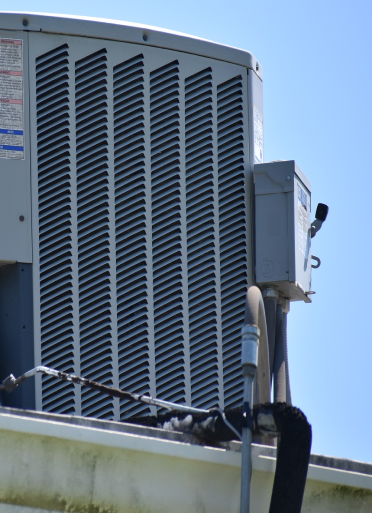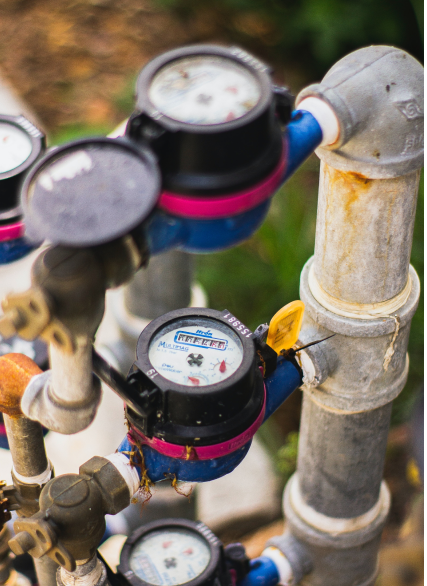(Brooklyn, Queens, Bronx, Manhattan, Staten Island)
New York City is the ultimate happening place. Our landscape is dotted with skyscrapers, residential complexes, and industrial building blocks. We take it for granted that our heating system runs automatically, that the 70th floor in a hi-rise building will have sufficient water, and that our hotel ball rooms and kitchens won’t back up with sewage.
Sometimes hundreds of people rely on one central system which would mean lots of misery for many people if it malfunctions.
Unfortunately, pumps aren’t invincible and sometimes break. The good news is that Edison Parker services all types of pump systems in the New York Metro area with prompt and efficient service. We are just a phone call away.
We know how important smoothly running pump systems are for day-to-day functionality in large buildings and facilities. The very worst nightmare for property and operation managers are failed pump systems. Faulty pumps can affect hundreds of people at the same time, leaving them without heat, air condition, water, and other mechanical-dependant functions.
As pump service specialists, we ensure that your pumps and controls are of top quality, we train how you how to manage the risks associated with aging equipment, and we are constantly on standby should there be an issue with your mechanical pumps - and all your mechanical equipment.
We know it’s never a good time for a pump emergency.
That’s why Edison Parker will arrive promptly, work efficiently and leave you with a fully-functioning pump system. You can rest assured that our skilled technicians and competent technicians are fully trained to ensure your equipment performs at optimum efficiency for years to come.


It is essential to determine the chemical composition of the media to be pumped in order to avoid corrosion and premature wear of your pump. A thorough knowledge of the physical properties of the treated fluid will allow you to choose the ideal technology for your needs.
Check:
These values allow you to calculate the NPSHa (Net Positive Suction Head available) of the setup which will allow you to choose the most suitable pump.
In the process industries, pumps are ubiquitous. Think wastewater, oil and gas, food and beverage, chemical processing, mining, building services, pulp and paper. The pumps used in these industries vary widely and each requires expert handling. That’s why it’s so important to consult a professional to advise on selecting the right pump for the application, as well as on testing and troubleshooting, installation and maintenance.
How do pumps work?All pumps consume energy to perform mechanical work that moves the fluid. Pumps can be driven by manual operation, wind power, electricity, engines or sustainable energy sources such as wind power.
These energy sources can come from a variety of equipment of varying sizes, such as medical microscopes, large industrial pumps for water supply systems, machine tool coolant transmission equipment, and so on.
The quality of the pump, as well as the accuracy with which it is installed will directly affect the output quality and ease of operation of the pump. As technology continues to advance, commercial pumps, as an integral part of many mechanical processes, will continue to play an important role in homes and buildings everywhere.
Do I need a submersible pump or a surface mounted pump?Submersible pumps are most often used in the home for pumping water out of a basement. They are also efficient for pumping out septic tanks, where case fluid is transferred into hoses to storage tanks and taken to a treatment facility. Obviously, submersible pumps can only operate effectively in bodies of water that are deep enough for them to be submerged.
Choosing between a submersible pump and a surface mounted pump depends on the overall suction head. If the depth is more than 7 meters, you’ll need to use a submersible pump - a surface mounted pump would not be able to extract a fluid at this depth.
On the other hand, if the suction head allows for the use of both types of pump, the choice should be made according to the application, environmental conditions and frequency of use.
Surface mounted pumps allow easy access and so are easier to maintain, but installation conditions may influence its performance. It is therefore necessary to provide protection against bad weather and other external agents.
What else is a submersible pump used for?These handy devices are commonly used for a variety of purposes:
If you own land and want to ensure that it is thoroughly irrigated and healthy, a submersible pump would be a great solution. Whether you own a mid-sized garden or several acres of farmland, you can use submersible pumps to supply your land with water from a reservoir, lake or other source. Due to the low cost or running submersible pumps, you should be able to run your pump-based irrigation system whenever necessary without breaking the bank.
Do you have a deep well or borehole that you want to use to supplement your water supply? Submersible pumps are ideal for transferring water from the well or borehole into storage tanks. They are efficient enough to pump water up from great depths without using too much power or becoming overstrained.
Do you need to get rid of a pond or similar body of water that’s taking up space on your land? Submersible pumps can help drain the water quickly and efficiently. They can also be used to pump water out of basements and other areas that could become flooded.


An HVAC system is simply an assembly of different types of equipment that are installed together to provide heating and cooling in commercial facilities. HVAC pumps transfer fluids within commercial HVAC systems to support the operation of boilers, chillers, and commercial water towers.
Commonly used pumps in HVAC:
A sturdy and reliable pump.
Here the pump and motor share a shaft so it takes up less space but is not as easy to service.
These are installed directly into the piping.
This pump draws water through the sides making it more efficient than single suction pumps. A sturdier, more costly pump, usually used when flow rates are high.
In HVAC usually just the pump portion is submerged. Used when NPSH (net positive suction head) is low.
No-one should be shivering through the nights or struggling with heat and humidity through the day. Edison Parker will make sure of that.
Don’t wait until the freezing cold of winter or scorching heat of summer to start upgrading your system. Fall or spring is a good time to do a thorough check, when there are more technicians available.
Replace air filtersFor a large commercial building, air filters should be changed monthly or quarterly to keep air flow at a maximum. This is especially important during peak seasons.
Regularly clean condenser coilsThis removes built up dirt and prevents your cooling system from long-term damage.
Have a biannual HVAC inspectionGet a professional. Edison Parker inspector to check the HVAC twice a year, ideally during the low-peak seasons of spring and fall. They will make sure the system is still safe and reliable and make appropriate recommendations.
Consider a full replacementEventually (usually after 10 years), maintaining a HVAC system becomes a drag on your time and money. Consider replacing it with a newer, more efficient system that will even last longer.
